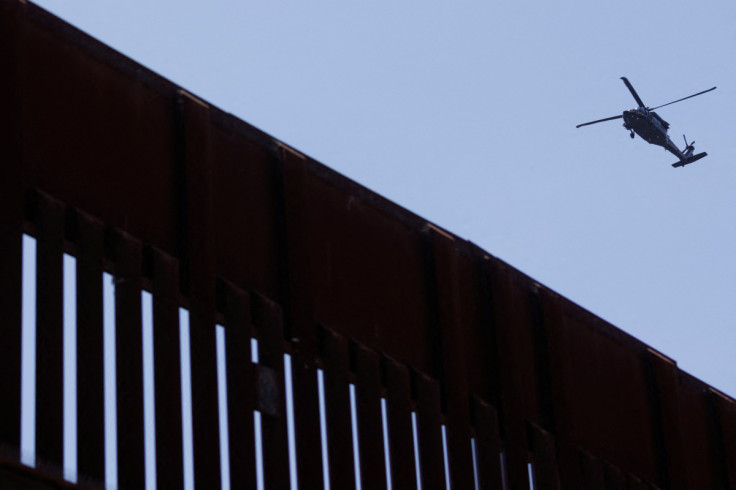Border Communities Brace For Crisis As Title 42 Expires Amid Surge In Migrant Apprehensions

The American border communities are feeling a heightened sense of unease as the overnight expiration of Title 42, a Covid-era border restriction policy in the US, coincides with the presence of tens of thousands of migrants gathered in northern Mexico. This situation has raised concerns that the already complex humanitarian crisis will deteriorate further as the number of border crossings continues to increase.
US border authorities have reported a staggering increase in daily migrant apprehensions, with more than 10,000 individuals being taken into custody each day over the past two days. This marks a new record for daily encounters and reinforces the upward trend in border arrests.
According to a CNN report, it is estimated that approximately 155,000 migrants are currently residing in shelters and on the streets across the northern Mexican states that border the US.
In El Paso, Texas, the situation remains critical as approximately 1,000 migrants patiently await processing outside a border gate. This number exceeds the 1,500 individuals who were processed by border agents in the preceding two days, as reported by US Border Patrol Chief Raul Ortiz.
On the eve of the expiration of Title 42, hundreds of migrants camped out at the border between Tijuana, Mexico, and San Diego.
Some of them were stuck for nearly a week, hoping to turn themselves in to U.S. Customs and Border Protection officials.
"We are very tired and hungry and I have been here for six days," said Pham Thanh, 28, of Vietnam, speaking through the bollards of a 30-foot (10-meter) border barrier.
"President Biden, I'm asking to save us, please," he said.
Confusion reigns among the migrants - though the expiration of Title 42 once might have offered a better chance for asylum, new rules taking its place will deny asylum to almost all migrants who cross illegally, forcing them to decide whether they have a better shot at life in the U.S. by crossing now or later.
An estimated 400 migrants come from around the world. Reuters spoke to people from Vietnam, Afghanistan and Colombia on Thursday. They are camped out in U.S. territory on a strip of land between two imposing border walls.
The southern wall marks the official U.S.-Mexican border and is relatively easy to traverse. There are some gaps or places where it is easy to climb. The second, northern wall - 30 feet (10 meters) tall in many places - hems them in. Many would like to enter the United States and turn themselves in to seek asylum.
Customs and Border Protection officials did not immediately respond to a Reuters request to explain how they are handling these migrants.
Border Patrol agents have organized them into groups, prioritizing those who arrived first and women traveling with children, according to Reuters witnesses. Each is given a color-coded wrist band - a sort of time stamp to mark their place in line.
The highest priority group is occasionally called away for processing. Agents take pictures of their faces and passports.
'LEFT HERE FOR A WEEK'
"I wasn't that well informed. I thought that coming here, asking the country for help, we would be received with open arms. I didn't think we'd be left here for a week, in the cold and rain and with very little food," said Luisa Fernanda Herrera Sierra, 22, of Colombia.
On the north side of the second wall, helmeted Border Patrol agents zip about on four-wheeled all-terrain vehicles. When they are present, aid groups stand back. But when they leave, aid workers distribute food and water through the bollards in the wall, again prioritizing women with children.
Beyond food and water, another lifeline volunteers provide is the charging of cell phones, so that migrants can communicate with loved ones back home.
Hashmutallah Habibi, 26, of Afghanistan, said he set out for the United States because "we cannot sit at home and wait for good things to happen in our country."
But he never expected to get stuck at the foot of a dusty ravine, without a shower or clean clothes for six days, with a sick sister.
"I'm just hoping and praying that today they take us in because if they don't take us then my future and my family future is dark because we escaped from dark place," Habibi said.
Many of the migrants know they have a difficult road ahead, as many if not most or all have not applied for asylum in another country before arriving here.
Fabian Camilo Hernandez, 26, of Colombia, who is traveling with his wife and 22-month-old baby, said he would not have set out on the journey had he known what was to lie ahead.
"It's hard to see him crying, not sleeping well," Hernandez said. "I don't want to think about what might happen. I just hope they let us in."
© Copyright Thomson Reuters 2024. All rights reserved.





















